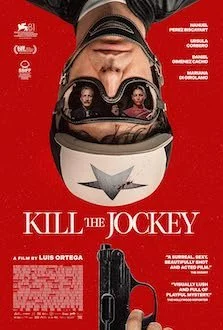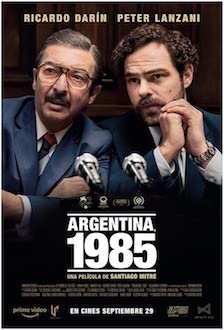Direction: Luis Ortega
Country: Argentina / Mexico / other
Kill the Jockey, the fifth feature from Argentine filmmaker Luis Ortega, is a surrealist neo-noir tragicomedy—visually striking and mood-rich—that is just odd enough to skate by. However, it can feel somewhat thin in the plot, despite its intriguing exploration of identity, exploitation, and rebirth.
The script—crafted by Ortega, Rodolfo Palacios (El Angel, 2018), and Fabian Casas (Jauja, 2014; Eureka, 2023)—follows Remo Manfredini (Nahuel Pérez Biscayart), a horse racing legend whose erratic, self-destructive behavior has left him numb. Struggling with addiction, Remo thrives on disaster and holds contempt for success. The racing world is dominated by Ruben Sirena (Daniel Giménez Cacho), a gangster obsessed with babies, whose only leverage now rests with Remo’s pregnant girlfriend, April (Úrsula Corberó). After a severe accident, Remo undergoes radical physical and psychological transformations that alter the course of his life.
Ortega’s vision is captivatingly strange, and the cast delivers exactly what he demands. Brimming with cinematic references, the film blends Aki Kaurismäki’s mordant humor, Wes Anderson’s bittersweet surrealism, and Radu Jude’s provocative social commentary. While the narrative occasionally feels circular, its offbeat tone and whimsical audacity make it potentially addictive once you surrender to its peculiar rhythms.





































